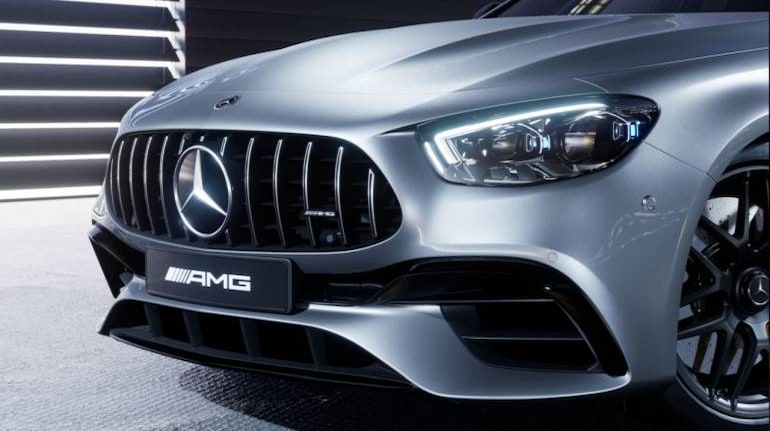



When Jaguar announced plans to go all-electric by 2025, no one was the least bit surprised. Jaguar, as a brand, has been ailing for the last couple of years, having lost ground in key markets like China and Europe. For Jaguar, hitting the reset button and continuing to build on the likes of the I-Pace, it’s only hit single in years, made perfect sense. When Mercedes-Benz announces similar plans a few months down the road, things get interesting.
According to Mercedes-Benz, the brand intends to go all-electric by 2030. This is in keeping with the proclamations of several other car brands. What isn’t however, is the key caveat that Mercedes-Benz only intends to sell electric cars “where market conditions allow” which means it’s keeping its extensive portfolio of petrol-powered cars (and possibly diesel) ready to be deployed in markets where they’re still in demand and where the EV space remains comparatively underdeveloped.
It just won’t be investing any more money in developing the requisite architecture for a new fossil-fuel-powered car. By 2025 Mercedes-Benz wants to invest in new EV architectures and aims to have a full-electric counterpart to each of the internal combustion cars in its current model range. By next year Mercedes-Benz intends to have an electric car in every segment it operates in.
Which is a lot of segments. At present Merc makes everything from a GT car to a van. The key difference between Merc’s future plan and those of brands like Jaguar, is that Merc hasn’t specified that it won’t be launching new ICE cars after 2025.
It’s just stated that it won’t be launching new architectures or platforms that aren’t EV related. And with the development of new ICE cars halted post-2025, Merc will, in all likelihood, continue to sell existing ICE cars in markets it deems fit.
The question is, will India be one of those markets? Mercedes-Benz has been a long-standing leader in India’s luxury car market. At present, the brand has 16 different models on sale in India.
Very recently it also began local assembly of select AMG models. According to the brand roughly 75% of their sales, at the moment, come from diesel powertrains, while the other 25% come from petrol. Their sole electric offering, the EQC, barely registers on the sales charts, having been brought-in in limited numbers. Merc will be strengthening its EV portfolio in India, going forward.
But the competition appears to have picked up the gauntlet thrown by the brand. Audi’s much-awaited e-tron has officially entered the Indian EV market, at a highly competitive price point.
The head of Audi India, Balbir Singh Dhillon, expects EVs to account for 15% of the brand’s total sales in India by 2025. Even if the projected growth rate is doubled for the next five years, that still leaves a greater chunk of the market to be occupied by internal combustion cars.
With another EV on the way, Audi is bullish about India’s electric infrastructure and wants to cover the ground it lost to the pandemic with a more wholesome luxury EV portfolio in the country. With its maiden EV offering, the e-tron launched at a starting price of Rs 99.9 lakh, it’s one of the most wholesome EVs in the market.
It has also entered the market at a time when the electric movement has gained more traction. Registration fees and road tax has been waived off in key industrial states like Gujarat and Maharashtra
With the European Union, China and California have stated that the sale of internal combustion engines will be banned by 2035, it’s imperative that automotive brands begin working on an exit strategy for their ICE cars as early as possible. The other key reason is catching up with EV industry leader Tesla.
India, despite having earmarked 2030 as the year we ban ICE vehicles, doesn’t seem likely to deliver on that promise. While the EV movement has undoubtedly gained considerable momentum in India in the last few months, the big question is if all the planned gigafactories and infrastructural targets for a nationwide network of chargers both fast and slow can be achieved by 2030.
Either way, the speed with which India switches to electric will depend entirely on how cost-effective EVs become in the near future. At a time when the world already has an established network of over 1 million public charging stations, India currently accounts for only 1800 of them.
The groundwork for our EV infrastructure has only just begun to be laid, and while a mix of incentives and subsidies along with heavy taxes on ICE cars will undoubtedly push the consumer towards EVs, it’s highly likely that sales of at least petrol-powered Mercs will continue after 2030.

Discover the latest Business News, Sensex, and Nifty updates. Obtain Personal Finance insights, tax queries, and expert opinions on Moneycontrol or download the Moneycontrol App to stay updated!
Find the best of Al News in one place, specially curated for you every weekend.
Stay on top of the latest tech trends and biggest startup news.